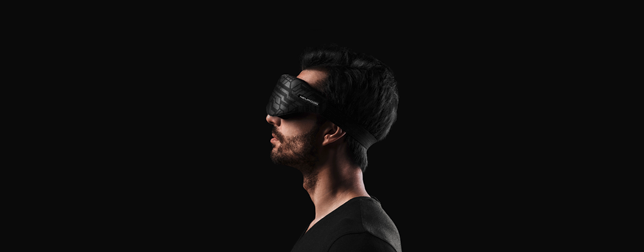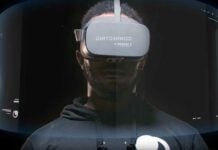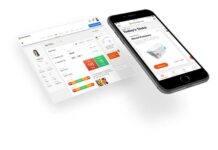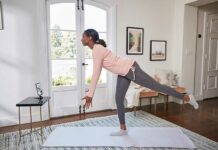Kamil Adamczyk is the CEO of Inteliclinic and inventor of the Neuroon. The Polish-American company is a hardware house that creates devices, which use artificial intelligence methods for precise biological signals processing. With the Neuroon – the first of coming series medical grade accuracy wearables, the smart brainwaves monitoring sleep mask, Inteliclinic won LeWeb Paris startup competition for the best startup in 2013 and has been chosen the best sleep startup in 2015 by HealthXL with cooperation with Cleveland Clinic. We are proud to have Kamil on stage our 1st WT | Wearable Technologies Conference in Barcelona on February 24! Here a brief interview with him in case you are curious already.
Can you tell our readers why they shouldn’t miss your talk in Barcelona and give them a sneak peek?
I am so excited about this opportunity. This is my first appearance at the Wearable Technologies Conference and also the first time to tell your audience about the Neuroon: a project we have worked on for the past two years and that was launched in the beginning of 2016 in its final version. The topic of my speech is: Your body is a clock: How your circadian rhythm affects your health. My plan is to interest the participants in the theory of how light can influence a person’s circadian rhythm. This idea is supported by the latest research from Stanford University that proves an even bigger impact of light on our bodies than was previously understood. Have you ever heard about Non-Image forming? I would like to discuss that the eye is not only purposed to see the world but also to understand it, providing our bodies with much more information including the regulation of body hormones and determining when we’re sleepy or awake. Of course I also will not miss the opportunity to share the most interesting information about the technology behind the Neuroon and it’s features because, thanks to this product, I can be here giving this speech. The Neuroon is a revolutionary wearable device – the first one on the consumer market that can analyze human sleep by monitoring brain waves and improve sleep quality using the breakthrough technology of Bright Light Therapy.
What biometric data can Neuroon measure? Using this information how can you help people to sleep better with Neuroon?
The Neuroon measures the biological parameters of the sleeper, including brain waves (single-channel EEG), pulse (pulse oximetry), body temperature, eye movement (EOG) and body movement during sleep (actigraphy). Based on the collected data, the Neuroon mask creates a personalized Bright Light Therapy to improve the user’s sleep quality. The Neuroon also uses an “artificial dawn” to wake the user up with light of gradually increasing intensity, a function that reduces the unpleasant effects of morning sleep inertia. The core functionality of the device is nearly medical-grade sleep measurements and helping people who work shifts, suffer jet lag, or have problems falling asleep. Bright Light Therapy is a technology that can alleviate jet lag, improve sleep efficiency, and help the user to fall asleep faster. The benefits of Bright Light Therapy were confirmed in a landmark study by Stanford University researchers lead by Jamie Zeitzer, PhD, assistant professor of psychiatry and behavioral sciences in 2014 and 2016.
What was the most tricky part when developing this product?
Initially, the project aimed at creating a device that would analyze users’ sleeping patterns and provide advice for people who want to sleep polyphasically, a process that breaks up sleep into napping intervals instead of a single nightly sleep episode. After over a year of consultations with leading authorities on sleep medicine, including Christopher Drake, PhD, the Director of Sleep Research at the Henry Ford Hospital and the former Chairman of the Board of the National Sleep Foundation, we decided that the Neuroon project should grow beyond sleep monitoring to include pulse tracking and light therapy. In addition to the scientific and engineering difficulties of the project, production and manufacturing was a very tricky part of development. As a startup we didn’t have much experience and contacts with subcontractors. We needed to carefully check every cooperation proposal and choose the best quality components, a process that was also a challenge for us. As of today we have successfully managed to produce more than 1000 masks.
Currently the sleep mask is available for newer iPhone and Samsung models. Will it be available for other phones as well in the future?
Prior to releasing the final version of the Neuroon and its companion app, we asked our Kickstarter backers, who supported us from the very beginning, and other customers who pre-ordered the mask – what kind of smartphone do they use. The results weren’t surprising: more than 70% declared that it’s iPhone and the majority of the rest answered that it is one of the newest Samsung Galaxy S phones. Our developers are working very hard now on introducing the full compatibility of the Neuroon Companion App to all the other Android devices.The greatest idea behind using a mobile app is that we can basically update it all the time. Thanks to this, even after the customer receives the product we can still surprise clients by adding new features to the Neuroon.
Are you wearing any wearables (besides your own)? Which ones?
I have to admit that I am a wearables addict. I cannot imagine my life now without a smartwatch, which is directly connected to my smartphone, or a step tracker. I also use a device that works as a heart rate monitor and a fitness tracker. I’m sleeping with two smartwatches on both hands. Some may say I’m crazy (ask my girlfriend) and that these are only gadgets and whims, but I really feel that the data these devices provide me are useful. Due to my education, I like to know what is going on with my body, how it reacts in different situations and conditions and what I can do to improve it. In comparison to all these trackers that I mentioned, the Neuroon is distinguished by not only being a tracking device but also by actually monitoring user’s sleep comparable to medical devices and helping improve their sleep quality.















